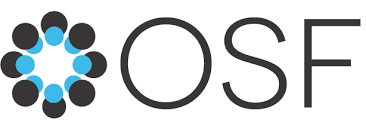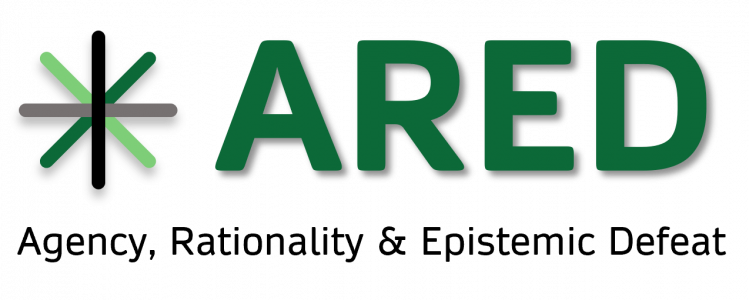Publications
Journal article
Melis, G. & Blakey, K. H. Epistemic Rationality Begins Unreflectively, Erkenntnis (2025). https://doi.org/10.1007/s10670-025-00977-x
Summary
Recent research in analytic epistemology suggests that one can form a rational belief without being in the position to identify and assess the evidence in its support. The reach of such unreflective responses to evidence has been explored in internalist and externalist theories of epistemic justification. It is also at work in defences of the rationality of non-human animals and young children. Unreflective responsiveness to evidence is in tension with reflective accounts, according to which being in the position to identify and assess the relevant reasons is necessary for rational belief and action. We investigate the relation between these two rival characterizations of rational belief by engaging with recent work in developmental psychology and integrating it with lessons coming from the study of epistemic defeaters. We contend that the roots of epistemic rationality lie in what subjects do at the unreflective level. The arguments we provide speak against the widely held notion that the reflective minds of adult humans differ in kind from the presumed unreflective minds of young children and non-human animals.
Pre-print
Blakey, K. H., Melis, G., Virányi, Z., & Rafetseder, E. (2024). Adults show selective responses to unreliability based on the strength of counterevidence. PsyArXiv. https://doi.org/10.31234/osf.io/pvr7q
Summary
Adults can reflectively revise their beliefs and selectively respond to unreliable informants, despite often forming and revising beliefs unreflectively without assessing their reasons. This study investigates how the strength of counterevidence coming from an informant affects adults’ ability to infer that the informant is unreliable through acquiring and responding to undermining defeaters (i.e., evidence suggesting that something was wrong with how the belief was formed). Participants (N = 120) watched videos of two informants acting on two locations: one whose actions reliably indicated the reward location, and one whose actions did not. The strength of feedback participants received after making a choice was manipulated across two conditions. In the Strong feedback condition, participants received positive feedback when they found the reward and explicit negative feedback when they did not, along with information about the reward’s true location. In the Weak feedback condition, they received positive feedback, but incorrect choices simply resulted in no reward appearing. Participants responded selectively to unreliability, following the Unreliable informant’s evidence less often than that of the Reliable informant. This effect was observed after only two to three misleading trials, but only in the Strong feedback condition. In subsequent trials where informants were pitted against each other, participants in the Strong feedback condition, but not in the Weak feedback condition, consistently preferred the Reliable informant. These findings suggest that adults’ ability to infer informants’ reliability depends on the strength of counterevidence. Additionally, exploratory analyses reveal a key distinction between acquiring and responding to undermining defeaters.
Pre-print
Blakey, KH., Rafetseder, E., Melis, G., Veit, A., Amelung, K., Freudensprung, F., Kovacs, K., & Virányi, Z. (2024). Non-verbal rationality? 2-year-old children, dogs and pigs show unselective responses to unreliability, but to different degrees. PsyArXiv. https://doi.org/10.31234/osf.io/ajh76
Summary
Some philosophers argue that reflection is key to rational thinking. By tying reflective thinking to language, they struggle to account for minimally verbal infants and exclude non-human animals. This study assesses processing of undermining defeaters – a basic form of reflective thinking – in 36 two-year-old British children (13 female; 98% White), 39 dogs, and 21 pigs. Subjects observed informants act on two screens: one informant’s actions reliably indicated the reward location, while the others did not. Twice informants switched actions, prompting subjects to infer the reliability of the informants. Subjects did not respond differently to the Reliable and Unreliable informants. However, reduced willingness to follow informants’ indications in later trials suggests a response to uncertainty or an undermining defeater.
Book chapter
Melis, G. Forthcoming Rationality and reflection in human and non-human animals. In Stovall, P. and Koreň, L. (eds.), Why and How We Give and Ask for Reasons, New York: Oxford University Press.
Summary
I challenge the view that reflection and language are essential to responsiveness to reasons from the standpoint of current analytic epistemology. After an introduction, in sections 2-4, I illustrate how the study of the cognitive abilities of very young children suggests that language and reflection are not necessary for responsiveness to reasons. In sections 5-6, I sketch a proposal in which both linguistic and non-linguistic subjects have access to the same broad rational abilities, if not to the same extent.
Journal article
Melis, G. & Monsó, S. Are Humans the Only Rational Animals? The Philosophical Quarterly, (2023). https://doi.org/10.1093/pq/pqad090
Summary
While growing empirical evidence suggests a continuity between human and non-human psychology, many philosophers still think that only humans can act and form beliefs rationally. In this paper, we challenge this claim. We first clarify the notion of rationality. We then focus on the rationality of beliefs and argue that, in the relevant sense, humans are not the only rational animals. We do so by first distinguishing between unreflective and reflective responsiveness to epistemic reasons in belief formation and revision. We argue that unreflective responsiveness is clearly within the reach of many animals. We then defend that a key demonstration of reflective responsiveness would be the ability to respond to undermining defeaters. We end by presenting some empirical evidence that suggests that some animal species are capable of processing these defeaters, which would entail that even by the strictest standards, humans are not the only rational animals.
Journal article
Melis, G. Normative Defeaters and the Alleged Impossibility of Mere Animal Knowledge for Reflective Subjects. Philosophia (2023). https://doi.org/10.1007/s11406-023-00658-5
Summary
Investigating how subjects’ knowledge is structured and acquired is central to understanding the relation between the cognitive achievements of adult humans and those of very young children and non-human animals. One important distinction is the one between reflective and unreflective knowledge. The former is supported by an evaluation of one’s state of knowledge, and adult humans exhibit it when they think something like “I know that Andy Murray plays today because I checked the BBC website.” The latter is not supported by an evaluation of the relevant state, and it is often ascribed to young children and non-human animals. For example, a two year-old may know that her mummy is in the room with her because she sees her mummy, and yet be incapable of formulating a thought like “I know that mummy is here because I see her.”
According to philosophers Sanford Goldberg and Jonathan Matheson, mere unreflective knowledge—that is, unreflective knowledge that is not thereby also reflective knowledge—is impossible for reflective subjects. Goldberg and Matheson’s view may support a dualism about knowledge which, if correct, would frustrate attempts to provide a unified account of knowledge-attributions to human adults, very young children, and non-human animals.
This article discusses Goldberg’s and Matheson’s proposal, outlines some of the ways in which it is insightful, and argues that it fails to establish the impossibility of mere unreflective knowledge for reflective subjects because it neglects the inherent temporal dimension of knowledge acquisition. It is argued that reflective subjects can have plenty of mere unreflective knowledge. The paper also highlights connections between the debates on the relation between unreflective and reflective knowledge, propositional and doxastic justification, and the theory of epistemic defeat. The final section advocates an interdisciplinary approach to investigate the relationship between unreflective and reflective cognitive achievements.
Open Science
Open science involves sharing research methods and results throughout the life cycle of a project. As a group, we are keen to establish and promote as many open science practises as possible, and are committed to open science principles.

We have created an Open Science Framework (OSF) page for the project. For each study, we will create an OSF project including (when available) the preregistration, publicly available data and analysis code, and when possible, a copy of the materials used in our experiments.




